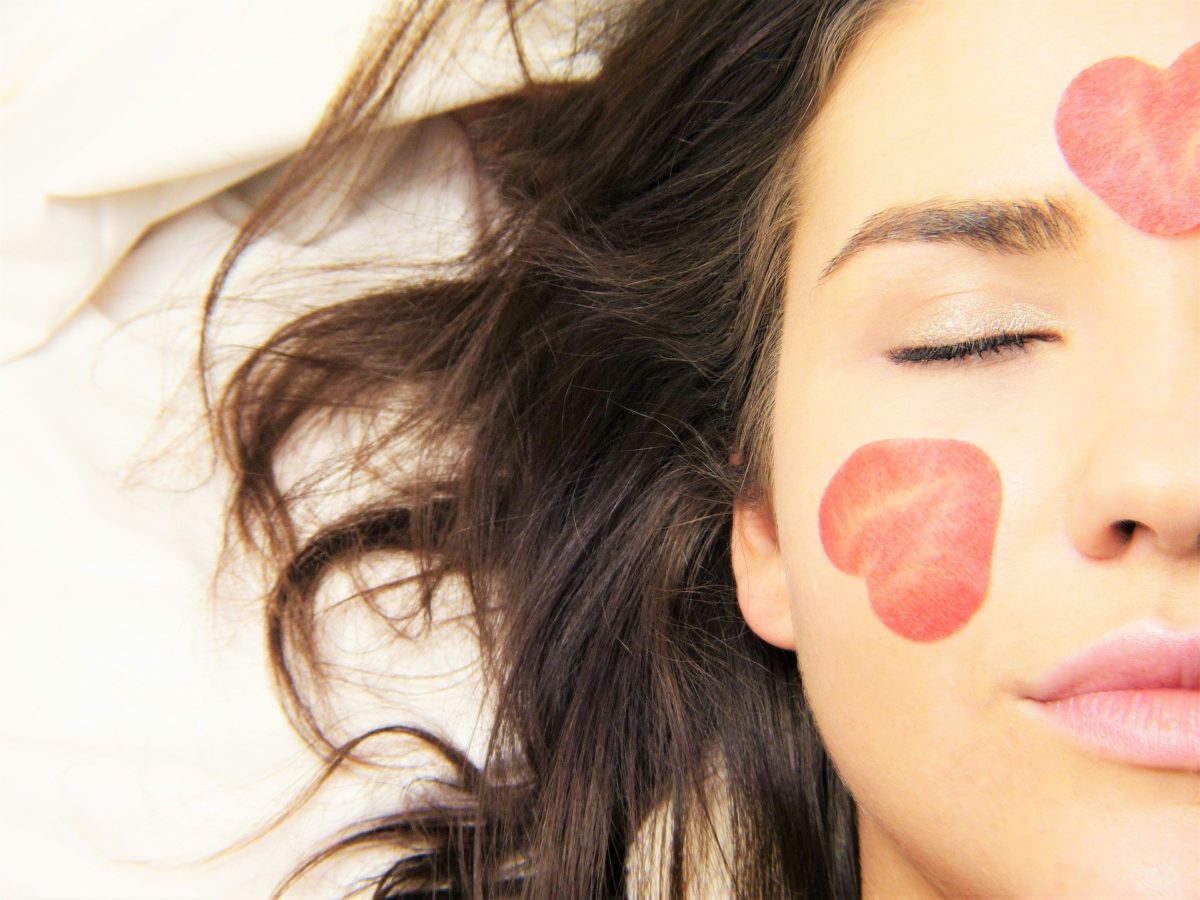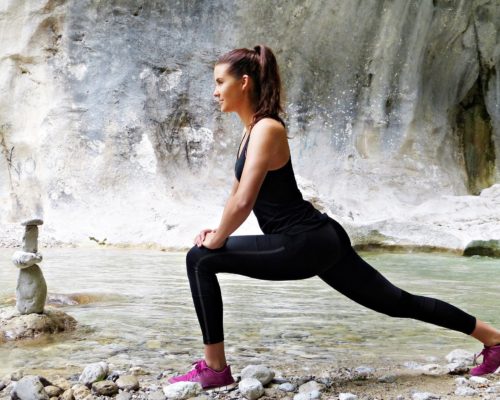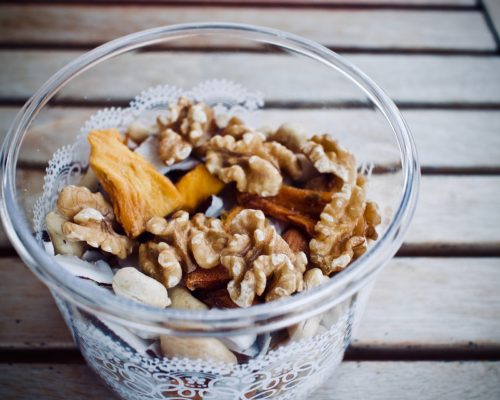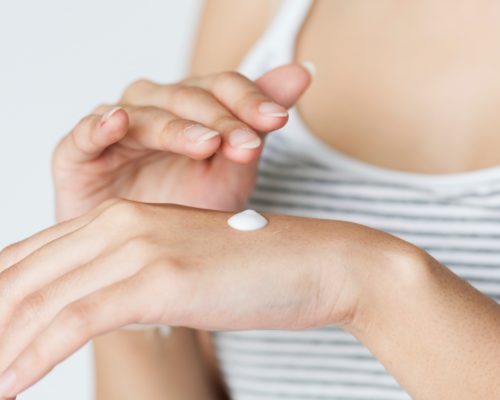What Is Collagen?
Collagen is a protein (a chain of amino acids) that builds organs rich in connective tissues such as skin, bones, and ligaments. It possesses the strength and resilience that connective tissues need to function properly.
Collagen is also found in abundance at the inner layer of the skin and makes a mesh-like structure that supports skin integrity.
As skin covers the whole body, it faces a tremendous amount of friction. As a result, collagen is subject to wear and tear, and as we age, its network slowly breaks down.
What Causes Skin Wear and Tear?
The body creates fibroblast cells that care for connective tissue maintenance and renewal. Fibroblasts produce collagen and replace damaged collagen fibers with fresh ones daily and especially when the skin is injured.
Like anything living cell, a fibroblast’s vitality is not eternal. Fibroblasts tend to diminish over time, and poor functioning of fibroblasts results in inadequate collagen replacement, poor tissue healing, and emergence of irregularities and gaps within newly formed collagen meshes. As years go by, this ill process leads to skin redundancy and wrinkles. Therefore, wrinkle prevention and elimination must be done the right way.
To date, no skincare product is superior to collagen-containing preparations. The use of collagen preparations in the cosmetic industry is a groundbreaking invention. Not only do they repair the defects underneath the skin but they also maintain a good quality of skin and conceal aging manifestations.
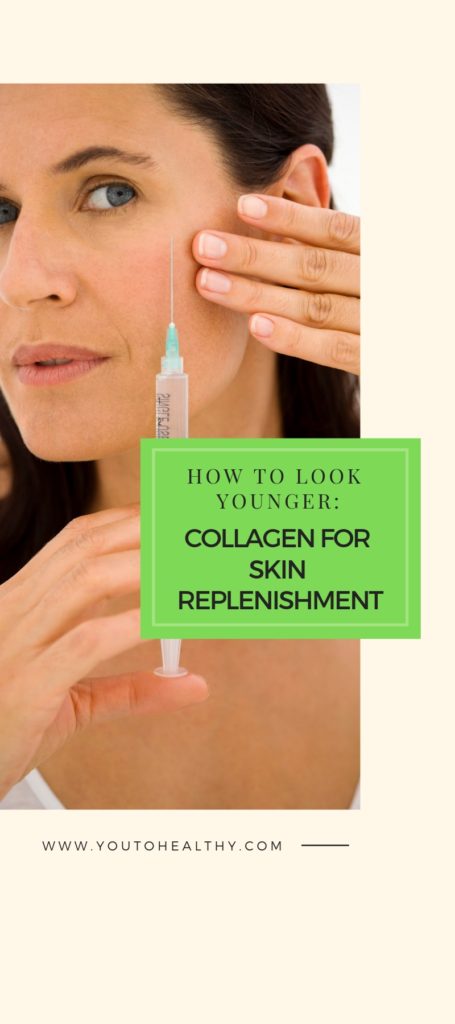
You may also like: THE IMPORTANCE OF INCREASING SKIN HYDRATION
How to Use Collagen for Skin Replenishment
Some of the proposed methods for skin replenishment include directly injecting collagen under the wrinkles to stretch them up, which then tightens and smooths the skin. Another promising way is injecting collagen-producing fibroblasts.
Superficial facial wrinkles under the eyes and around the mouth can be treated by “filler” injections, while deep wrinkles at the forehead are best treated by injecting Botox™ material. For significant skin redundancy like underarm folds and in some complex cases, plastic surgery may be an option.
If you prefer to go a more natural route, be sure to include the daily requirement of vitamin C and nutrients that promote healthy skin. Vitamin C is essential to the efficient manufacturing of collagen.
Many vegetables such as broccoli, kale, parsley, spinach, and chili peppers are rich in vitamin C. Fruits high in vitamin C include, but are not limited to, lemons, oranges, strawberries, guavas, and kiwi.
Some pharmaceutical companies manufacture topical creams with vitamin C. There are also several home remedies you can try such as a cucumber yogurt blend, an egg white face mask, a banana mask, or a lemon juice honey dab.
You can also complement your skincare or skin hydration routine with the wide variety of generic collagen-rich skin preparations on the market. Advanced products of collagen creams contain antioxidants, anti-aging properties, and vitamins B5, C, and E. This formula rejuvenates your skin (and can help you look a decade younger!).
Beware of products containing certain potentially toxic metals such as copper, zinc, and selenium. To get the best out of products containing these ingredients, they should be taken under medical supervision. These minerals polish your wrinkles and firm your skin, but you shouldn`t exceed the daily limit of each. To be safe, check with your doctor or a pharmacist before using them.
Final Thoughts Collagen for Skin Replenishment
Collagen is a biological material that enriches your skin, but like any substance in the body, it decays over time. Using collagen preparations is a great way to help you maintain a look that is both attractive and youthful.

